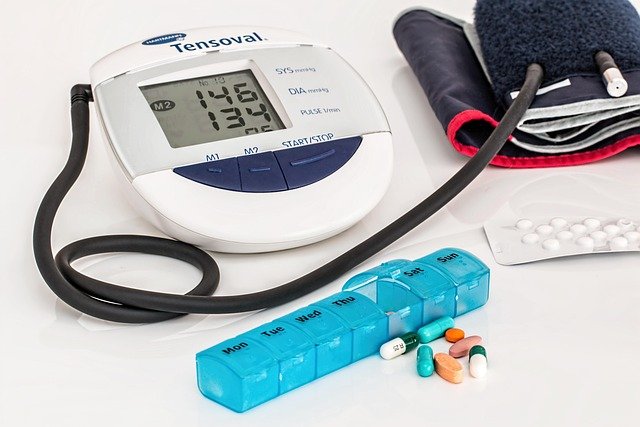Heart Disease Treatment: Understanding Your Options and Taking Action
Heart disease remains one of the leading causes of death worldwide, affecting millions of people each year. However, with advancements in medical science and a better understanding of cardiovascular health, there are now numerous treatment options available for those diagnosed with heart disease. This article will explore the various approaches to heart disease treatment, from lifestyle changes to medical interventions, helping you understand the options available and empowering you to take control of your heart health.

Medications are frequently prescribed to manage various aspects of heart disease. Common types include statins to lower cholesterol, beta-blockers to regulate heart rate, and ACE inhibitors to control blood pressure. These medications can help reduce the workload on the heart and prevent further damage.
Medical procedures may be necessary for more severe cases of heart disease. These can range from minimally invasive procedures like angioplasty and stenting to open-heart surgeries such as bypass operations. The goal of these interventions is to restore blood flow to the heart and improve its function.
How does lifestyle modification impact heart disease treatment?
Lifestyle modifications play a crucial role in heart disease treatment and can significantly impact patient outcomes. By making positive changes to daily habits, individuals can often slow or even reverse the progression of heart disease.
A heart-healthy diet is fundamental to managing heart disease. This typically involves reducing saturated fats, increasing fiber intake, and consuming more fruits, vegetables, and whole grains. The Mediterranean diet, for example, has been shown to have significant cardiovascular benefits.
Regular physical activity is another key component of lifestyle modification. Exercise helps strengthen the heart muscle, improves circulation, and can help manage weight – all factors that contribute to better heart health. Even moderate activities like brisk walking for 30 minutes a day can make a substantial difference.
Stress management techniques, such as meditation, yoga, or deep breathing exercises, can also play a role in heart disease treatment. Chronic stress can contribute to high blood pressure and other risk factors for heart disease, so finding effective ways to manage stress is important.
What medications are commonly used to treat heart disease?
Medications are a cornerstone of heart disease treatment, helping to manage symptoms and reduce the risk of complications. The specific medications prescribed will depend on the type of heart disease and individual patient factors.
Statins are one of the most commonly prescribed medications for heart disease. These drugs work by lowering cholesterol levels in the blood, which can help prevent the buildup of plaque in the arteries. Examples include atorvastatin and simvastatin.
Beta-blockers are another important class of heart medications. They work by slowing the heart rate and reducing the heart’s workload, which can be beneficial for patients with heart failure or those who have had a heart attack. Common beta-blockers include metoprolol and atenolol.
ACE inhibitors and ARBs are medications that help relax blood vessels, making it easier for the heart to pump blood. These are often prescribed for patients with high blood pressure or heart failure. Lisinopril and losartan are examples of these types of medications.
When are medical procedures necessary for heart disease treatment?
While lifestyle changes and medications can manage many cases of heart disease, some situations may require medical procedures. These interventions are typically considered when less invasive treatments have not been effective or when the heart disease is severe.
Angioplasty and stenting are common procedures used to open blocked arteries. During an angioplasty, a small balloon is inflated inside the artery to widen it, and a stent (a small mesh tube) may be placed to keep the artery open. These procedures can quickly restore blood flow to the heart in cases of severe blockages.
Coronary artery bypass grafting (CABG) is a more invasive surgery used for severe cases of coronary artery disease. In this procedure, blood vessels from another part of the body are used to create a bypass around blocked arteries, improving blood flow to the heart.
Heart valve repair or replacement may be necessary for patients with valve diseases. These procedures can involve repairing a damaged valve or replacing it with an artificial one, helping to restore proper blood flow through the heart.
How is heart failure treated differently from other heart conditions?
Heart failure is a complex condition that often requires a multifaceted approach to treatment. While it shares some treatment strategies with other heart conditions, there are also specific interventions tailored to managing heart failure.
Medications play a crucial role in heart failure treatment. In addition to the common heart medications mentioned earlier, drugs specific to heart failure may be prescribed. These can include diuretics to reduce fluid buildup, digoxin to strengthen heart contractions, and newer medications like sacubitril/valsartan that have shown promise in improving heart failure outcomes.
Cardiac resynchronization therapy (CRT) is a specialized treatment for some cases of heart failure. This involves implanting a device that helps coordinate the contractions of the heart chambers, improving the heart’s pumping efficiency.
Lifestyle modifications are particularly important in heart failure treatment. Patients are often advised to closely monitor their fluid intake, weigh themselves daily to detect fluid retention, and follow a low-sodium diet to manage symptoms and prevent exacerbations.
What are the latest advancements in heart disease treatment?
The field of cardiology is constantly evolving, with new treatments and technologies emerging to improve heart disease outcomes. Some of the latest advancements include:
Transcatheter aortic valve replacement (TAVR) is a minimally invasive procedure that has revolutionized the treatment of aortic valve stenosis. This procedure allows for valve replacement without open-heart surgery, reducing recovery time and risks for many patients.
Gene therapy and stem cell treatments are areas of ongoing research in heart disease treatment. While still largely experimental, these approaches hold promise for regenerating damaged heart tissue and potentially reversing heart disease.
Artificial intelligence and machine learning are being increasingly used in cardiology to improve diagnosis and treatment planning. These technologies can analyze large amounts of data to predict patient outcomes and personalize treatment strategies.
Wearable devices and remote monitoring technologies are becoming more sophisticated, allowing for better management of heart conditions outside of the hospital setting. These tools can provide early warning signs of potential problems and help patients stay on track with their treatment plans.
In conclusion, heart disease treatment has come a long way, offering a range of options from lifestyle changes to cutting-edge medical procedures. By understanding these treatment options and working closely with healthcare providers, patients can take an active role in managing their heart health and improving their quality of life.
This article is for informational purposes only and should not be considered medical advice. Please consult a qualified healthcare professional for personalized guidance and treatment.






